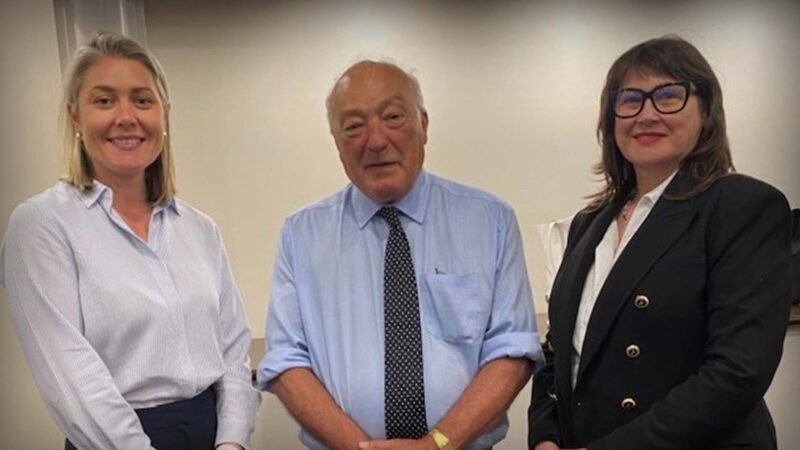POPULATION SCREENING FOR CHRONIC DISEASE MAXIMISING BENEFITS, MINIMISING HARMS Public Health Association of Australia (PHAA) hold conference on current and future advances in population screening
With
Adjunct Professor Terry Slevin, Chief Executive Officer
Public Health Association of Australia
Australian Health Journal Segment
Filmed in Sydney | March 2025
Population screening is an important contributor to advancing health outcomes through the early detection of and successful intervention for chronic disease. The evolution of science, technology and evidence relating to diseases which are or may be amenable to a population screening approach deserve broad discussion and the sharing of expertise and evidence. They also warrant close scrutiny in context of health policy and health resource allocation considerations.
There are established (and proposed) screening programs relevant to a range of diseases, notably breast, cervix, bowel cancer, and more recently for skin and lung cancer screening. There are a number of other chronic diseases where as new technologies are emerging and evidence is being gathered to support organised screening, (including but not limited to diabetes, CKD, MAFLD as well as cardiovascular and other risk assessment for primary prevention in general practice.
Population-based criteria for screening, based on WHO criteria and the Australian Population Based Screening Framework, aim to ensure that the benefits of screening outweigh and minimise any potential harms. These criteria are well understood by those involved in established screening programs and advocates for emerging screening programs are keen to learn from past experience how to compile evidence, design, implement and monitor programs, as well as ensure equitable participation. Similarly, there is much to learn from emerging programs and new technologies for those involved in established programs where adopting advances in evidence and technology can be challenging and perceived as slower.
In March, Public Health Association of Australia (PHAA) convened Screening Conference Conference 2025 with the theme of ‘Population Screening for Chronic Disease – Maximising Benefits, Minimising Harms’.
The conference provided opportunities for attendees to exchange information on population screening and learn from each other’s experience, across a range of disciplines. Those in attendance and presenting came from research, society, Government, program delivery, policy, consumers and clinicians.
Source: Adapted from Screening 2025 Conference website (PHAA operated)
You Might also like
-
Improving access to osteopathic services and integrated care models
The Chief Executive Officer of Osteopathy Australia, Antony Nicholas spoke with Australian Health Journal about:
– Involvement in the Strengthening Medicare Task Force
– The unique skills osteopaths have that can address the chronic disease burden
– Current workforce issues around osteopaths and if enough are coming through via student placements
– How uploading data to My Health Record by osteopaths could assist team-based care of patients
– How the value of osteopaths in Residential Aged Care Facilities (RACFs) could be better understood and better access for residents
– The recommendations around aged care access to allied health services, including osteopathy
– The recommendations around consumer access to osteopaths and GP referrals
– Other osteopathy recommendations in the upcoming Federal BudgetIn the lead up to the Australian Federal Budget in May 2023, Australian Health Journal reached out to peak health industry bodies to hear about their priorities, either noted in pre-budget submissions lodged with Federal Government in January 2023 or in recent forums such as the Strengthening Medicare Taskforce.
-
Representing the profession that impacts individual lives and communities
Michelle Oliver is a highly experienced Occupational Therapist with nearly two decades of leadership and clinical expertise across the mental health, homelessness, and disability sectors. She holds a Master of Occupational Therapy from the University of South Australia and is a registered practitioner with AHPRA.
-
Implementing improvements in referral management and demand
Nalani Cox joined Gold Coast Health in 2019 as a Nurse Manager focused on improving referral management processes within the outpatient environment through the implementation of the Clinical Prioritisation Criteria. This work became a focus point for the organisation in 2020 when Nalani led an organisational wide change project introducing Smart Referrals, Refer Your Patient website and HealthPathways which has culminated in her position as the ADON of the Referral Strategy and Performance Department.



